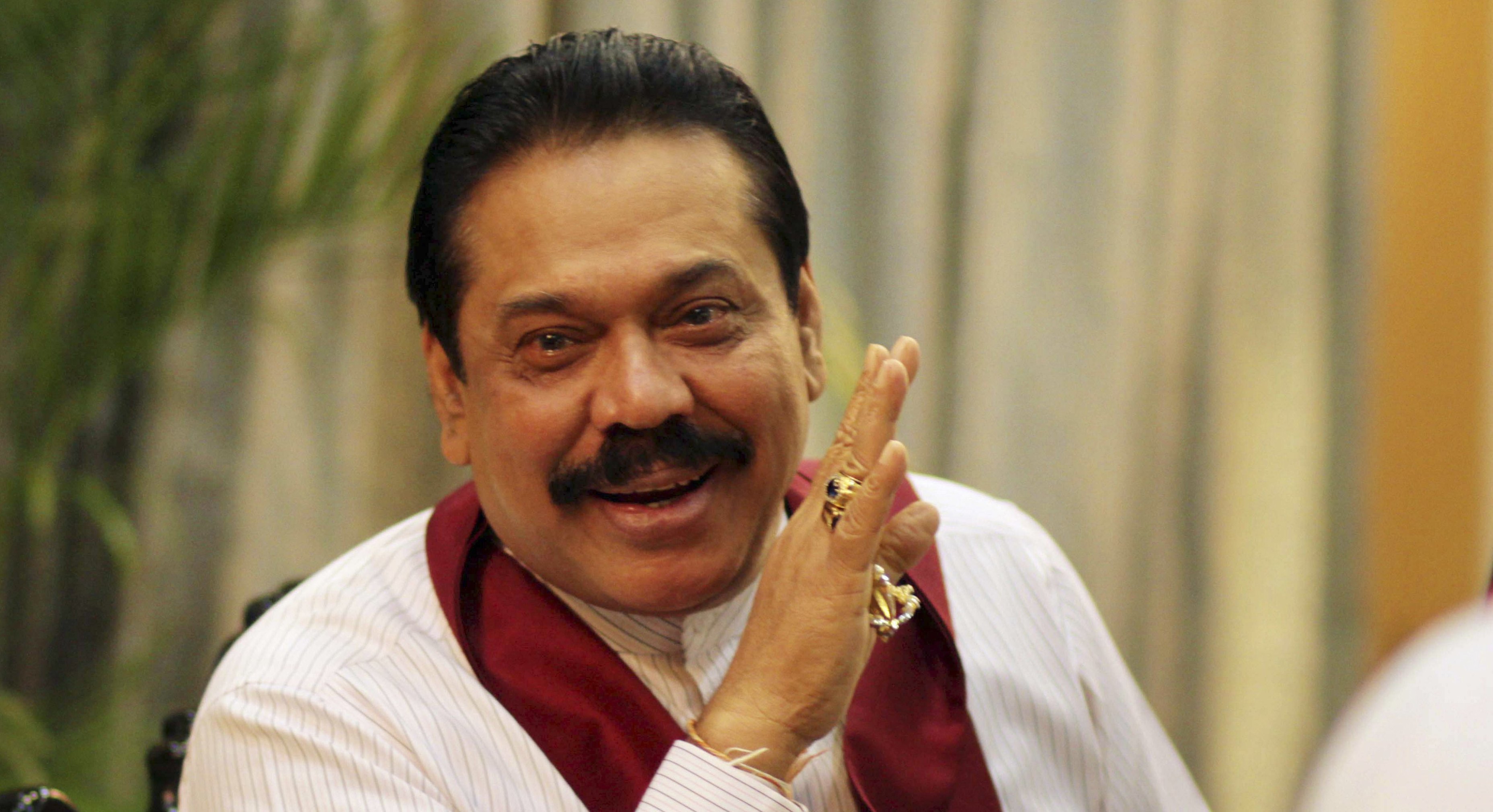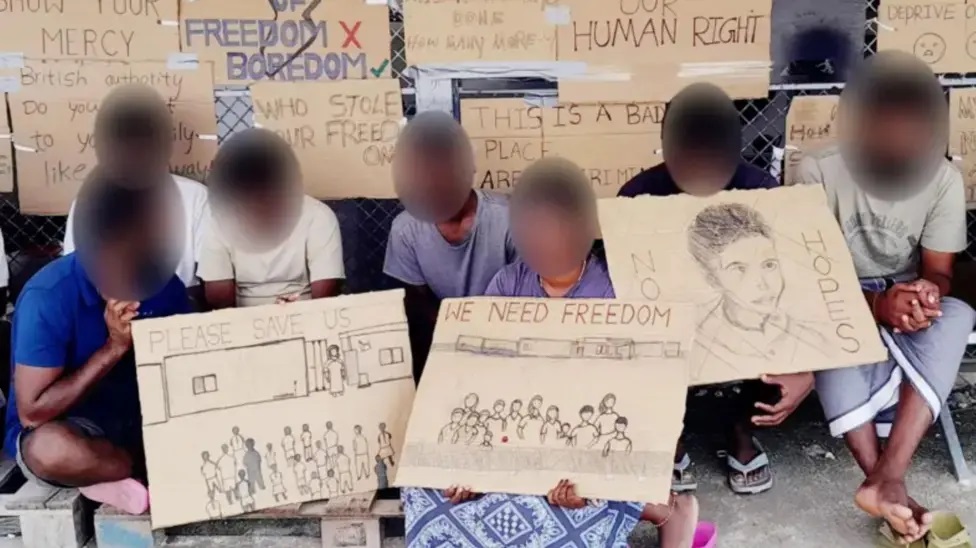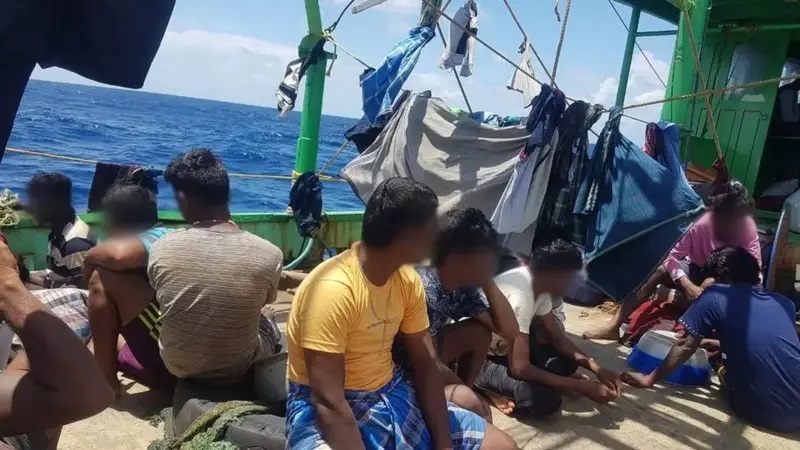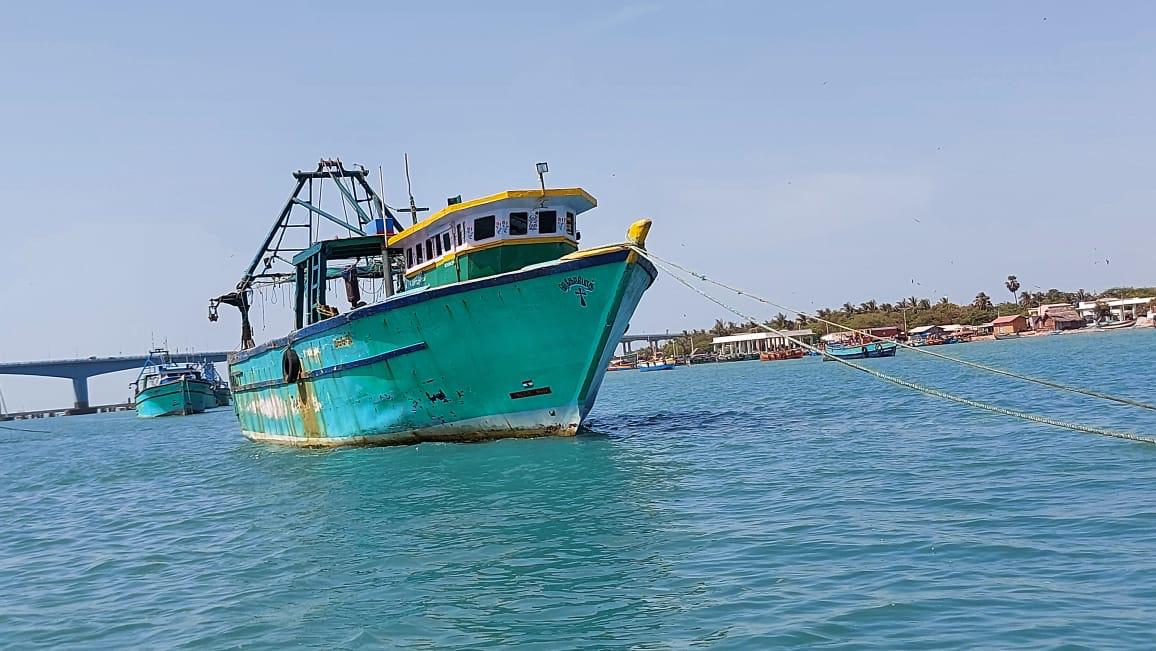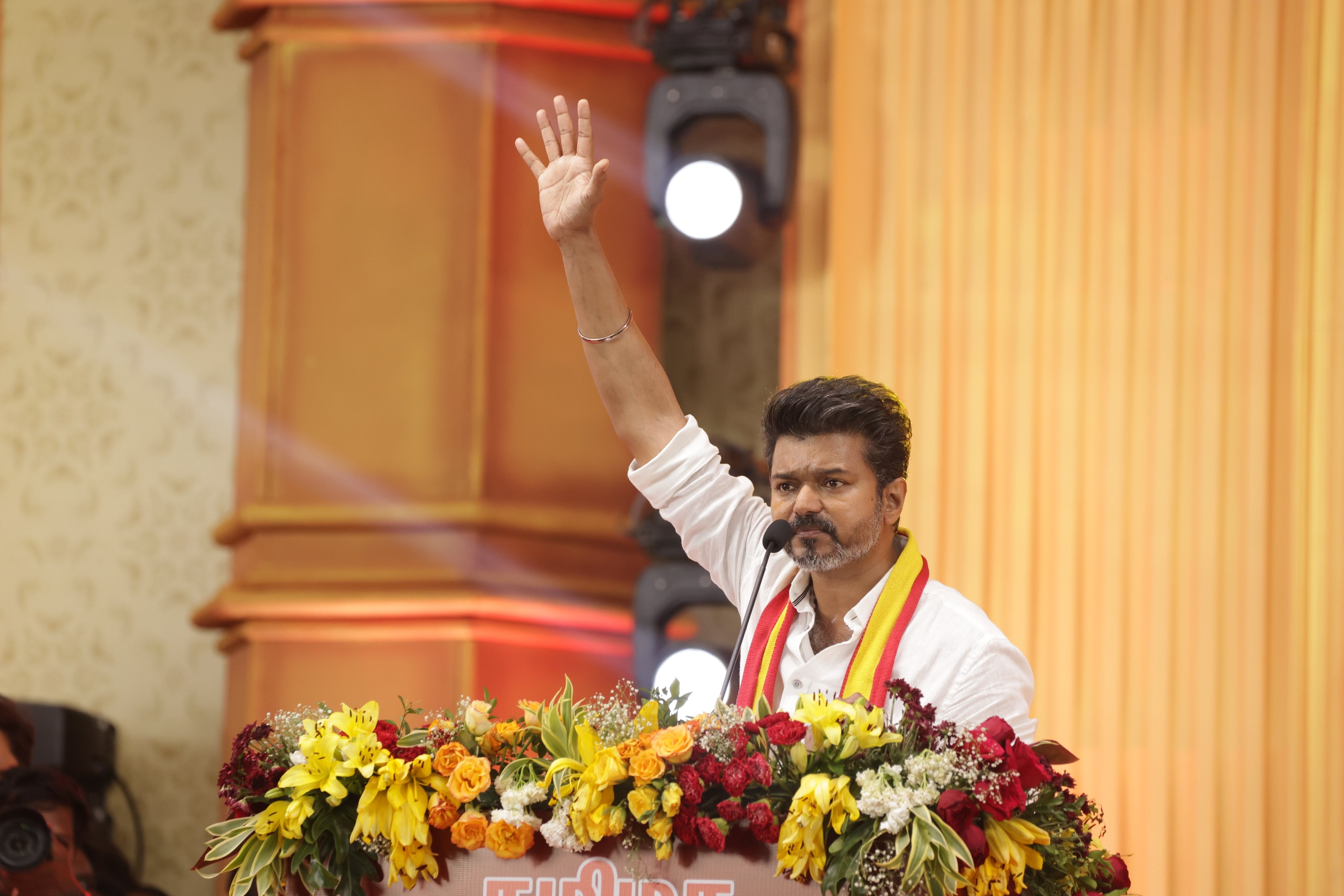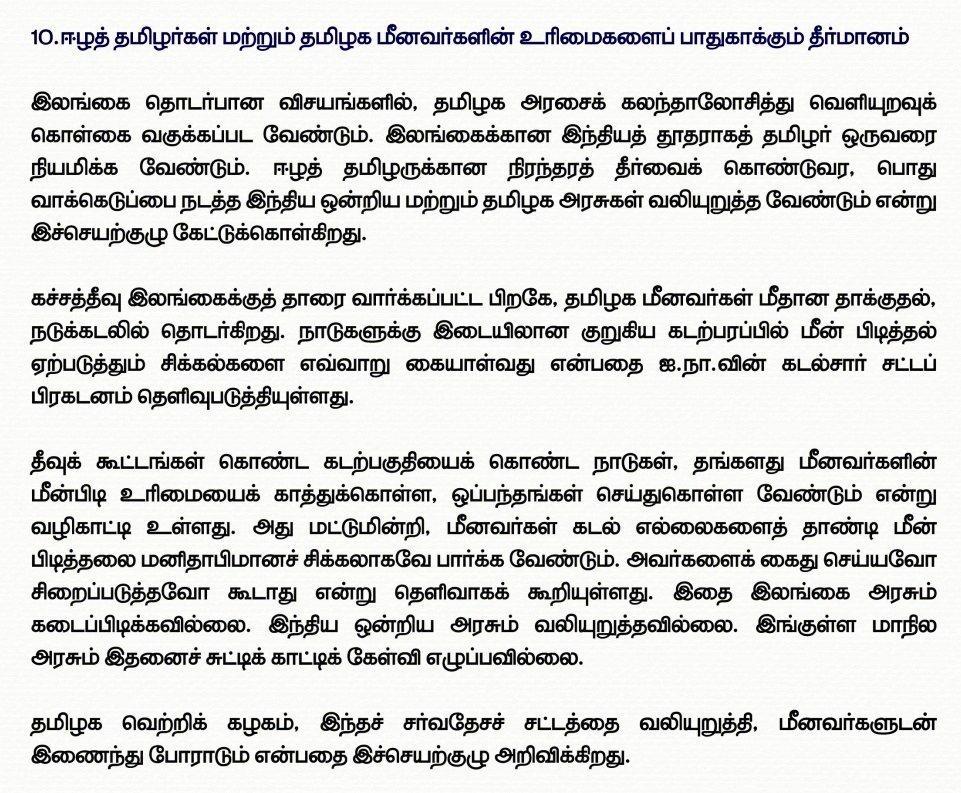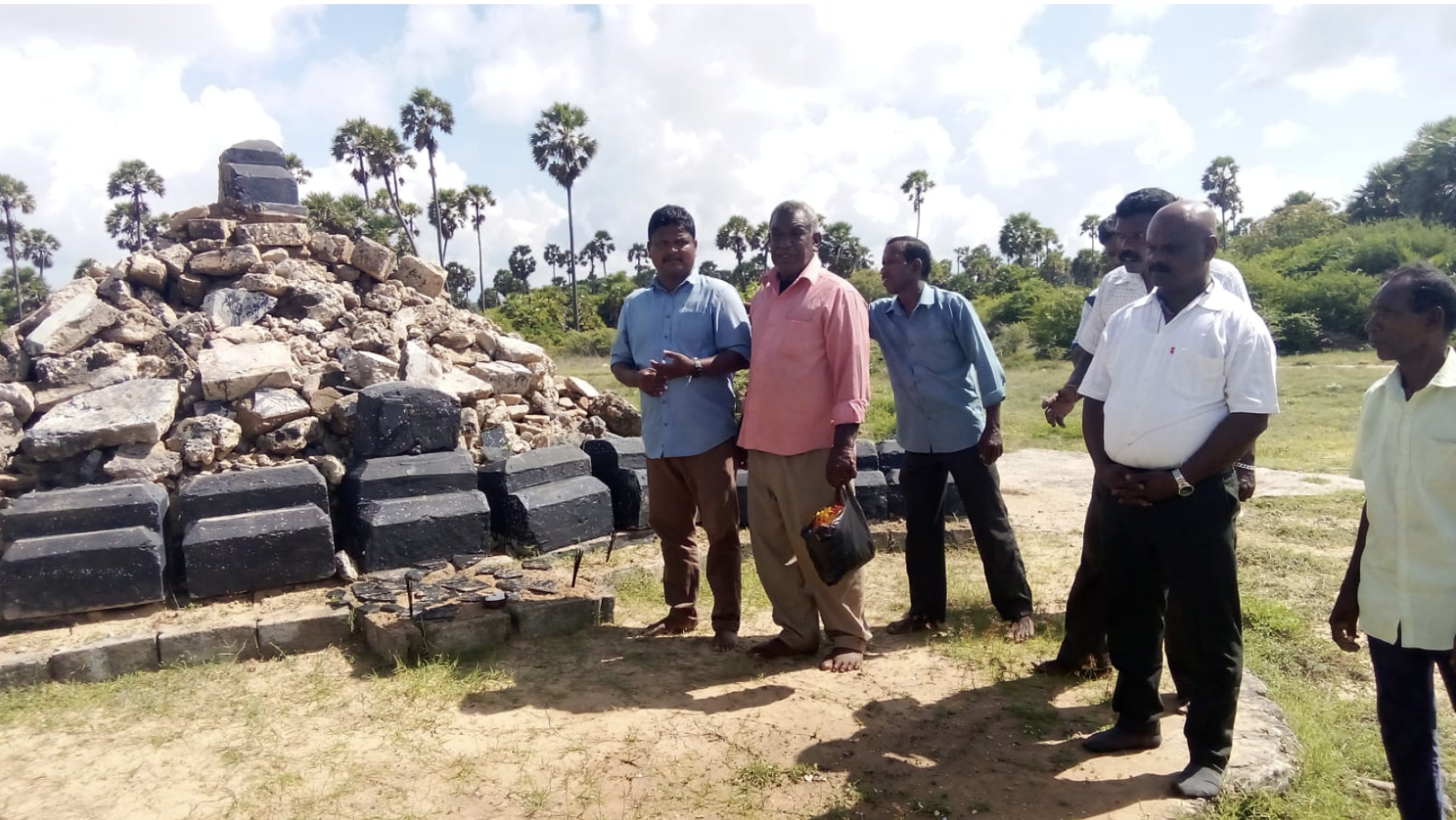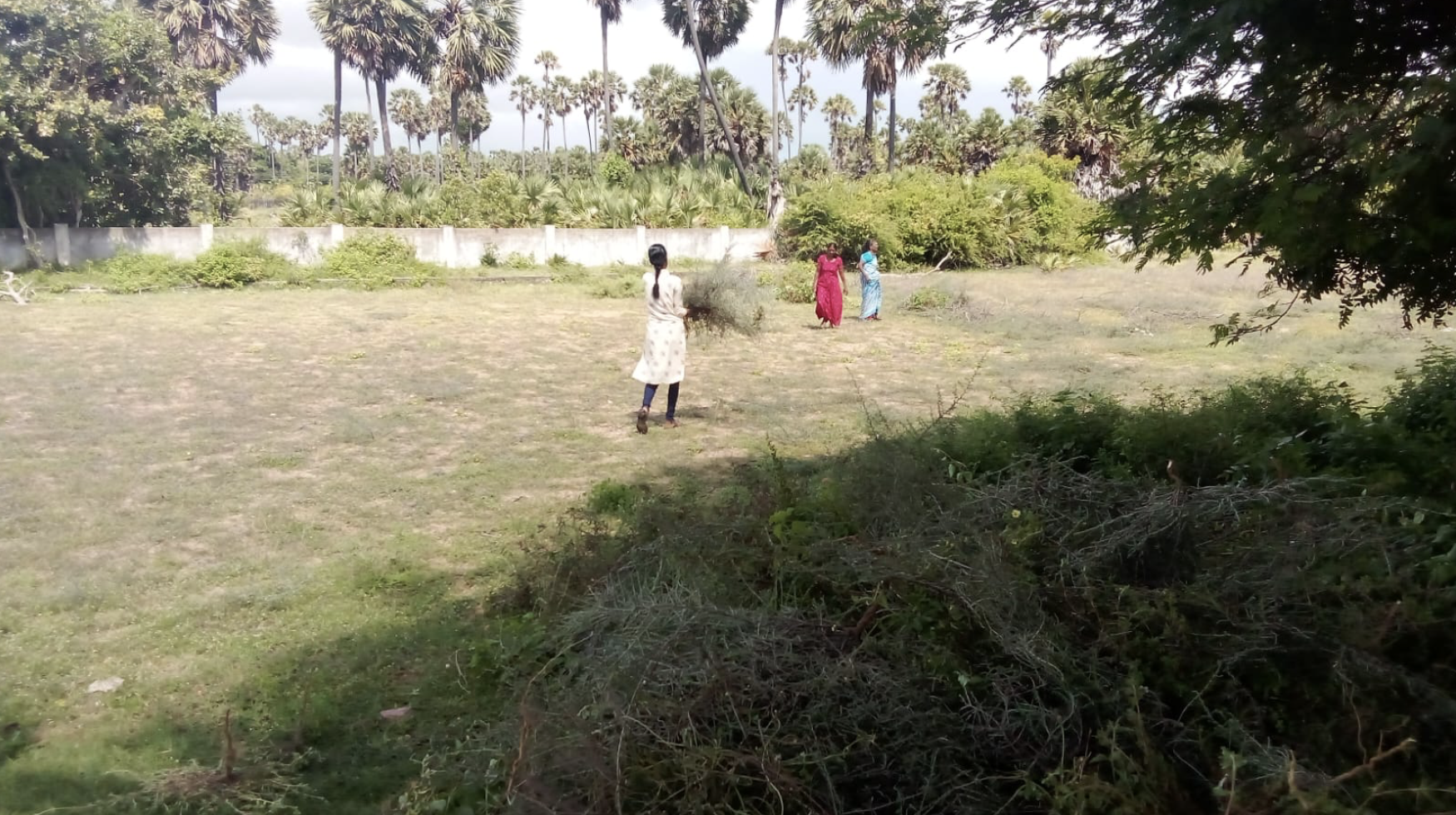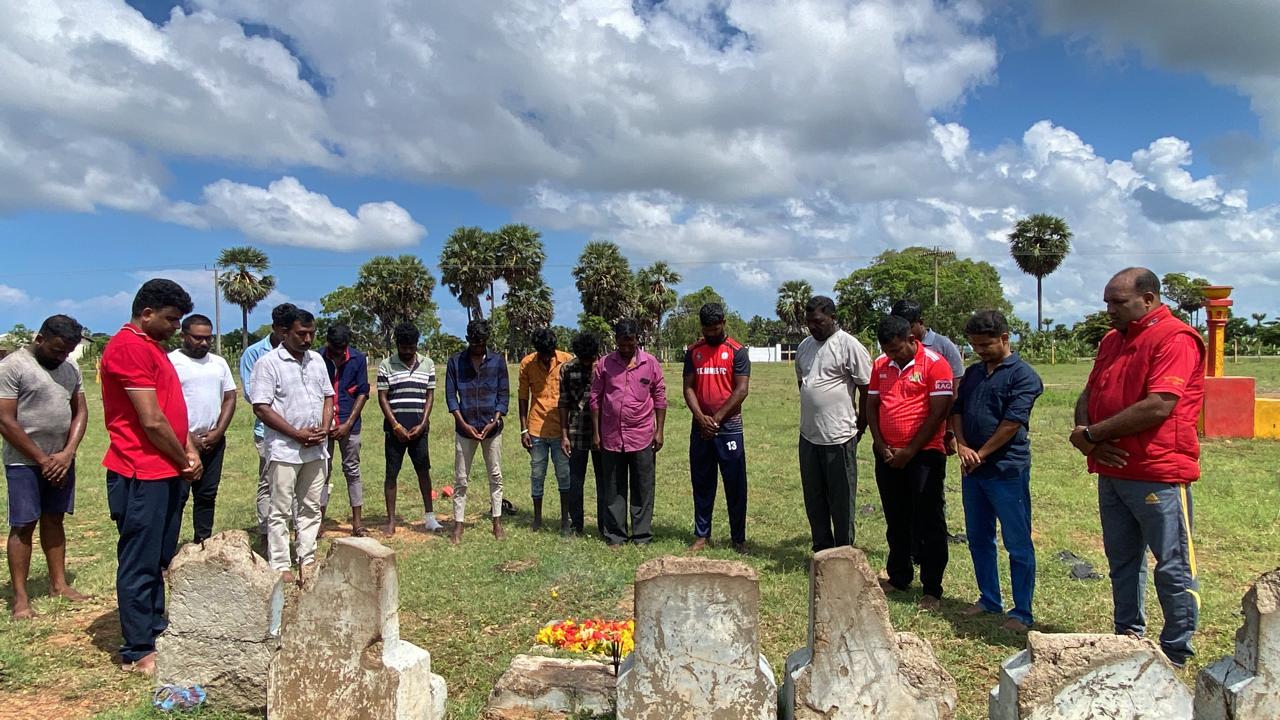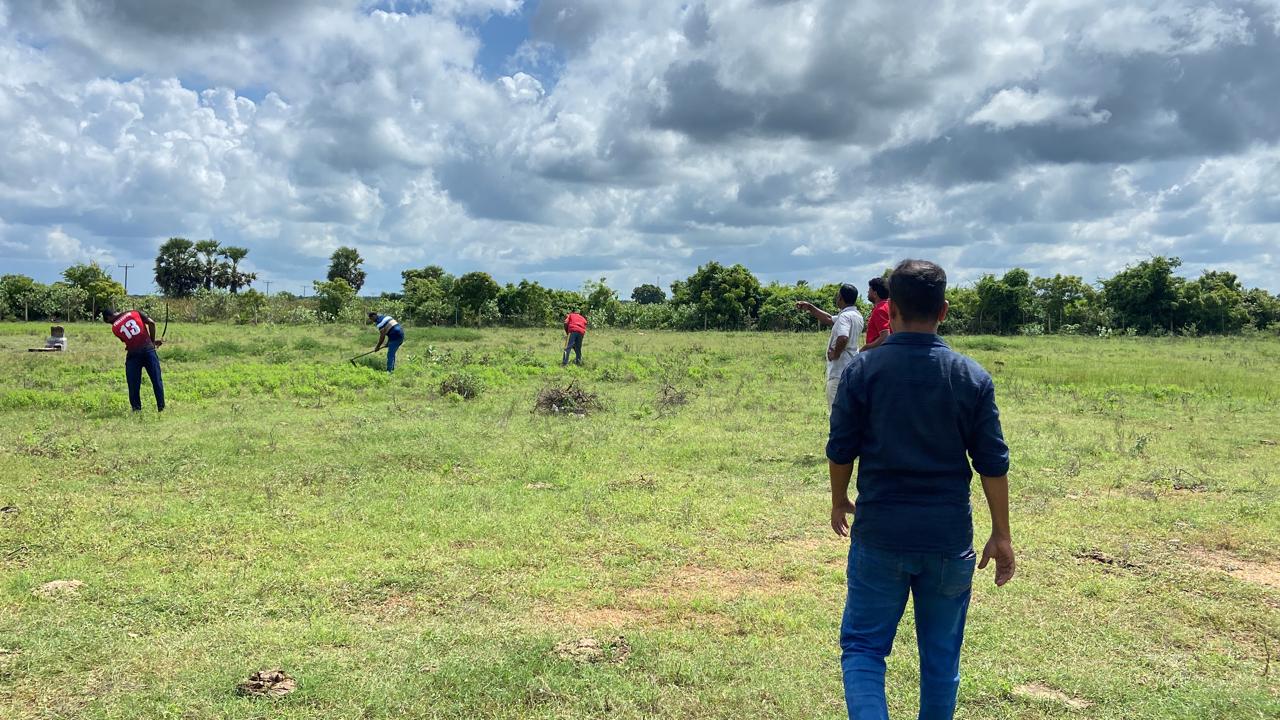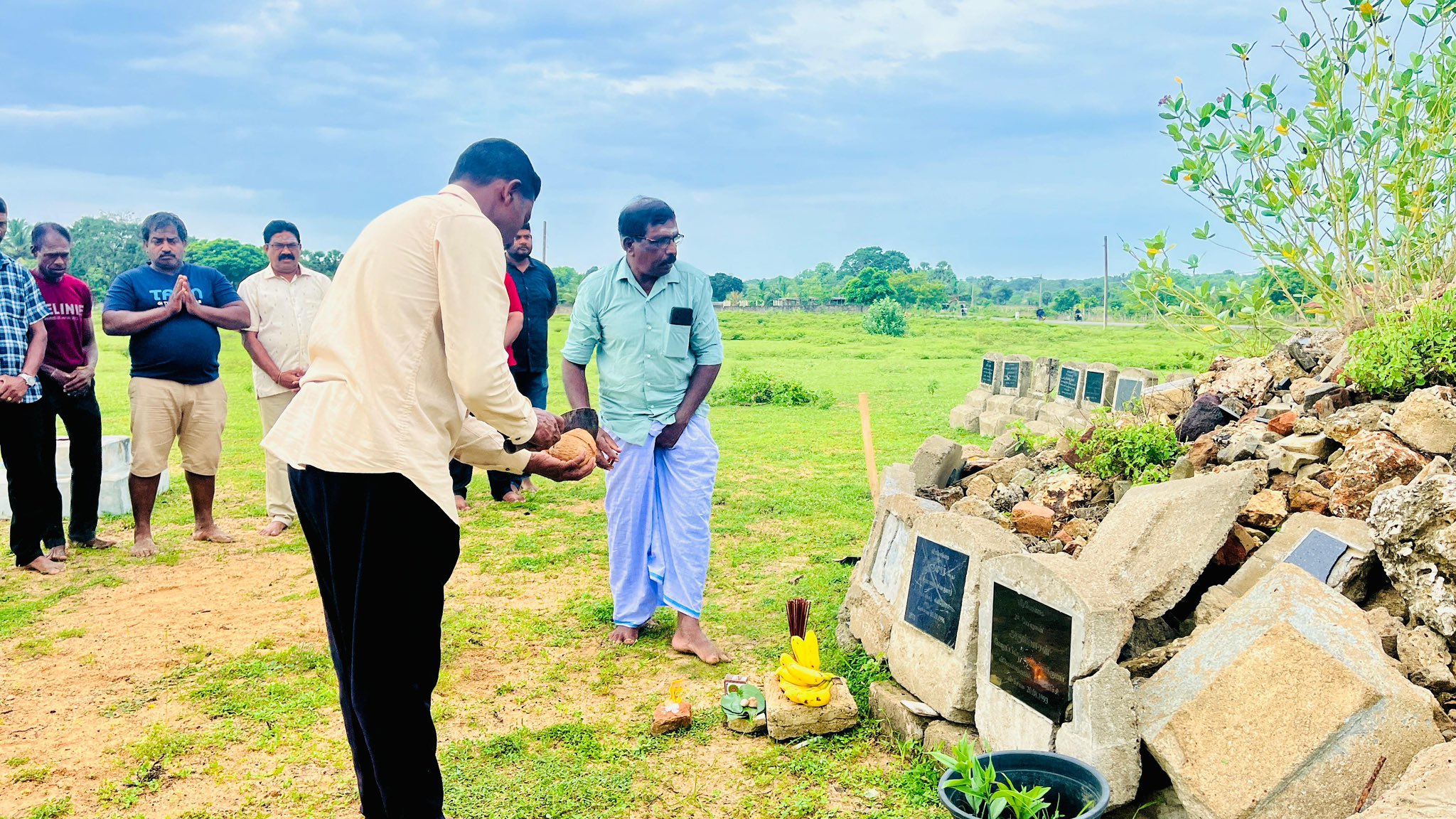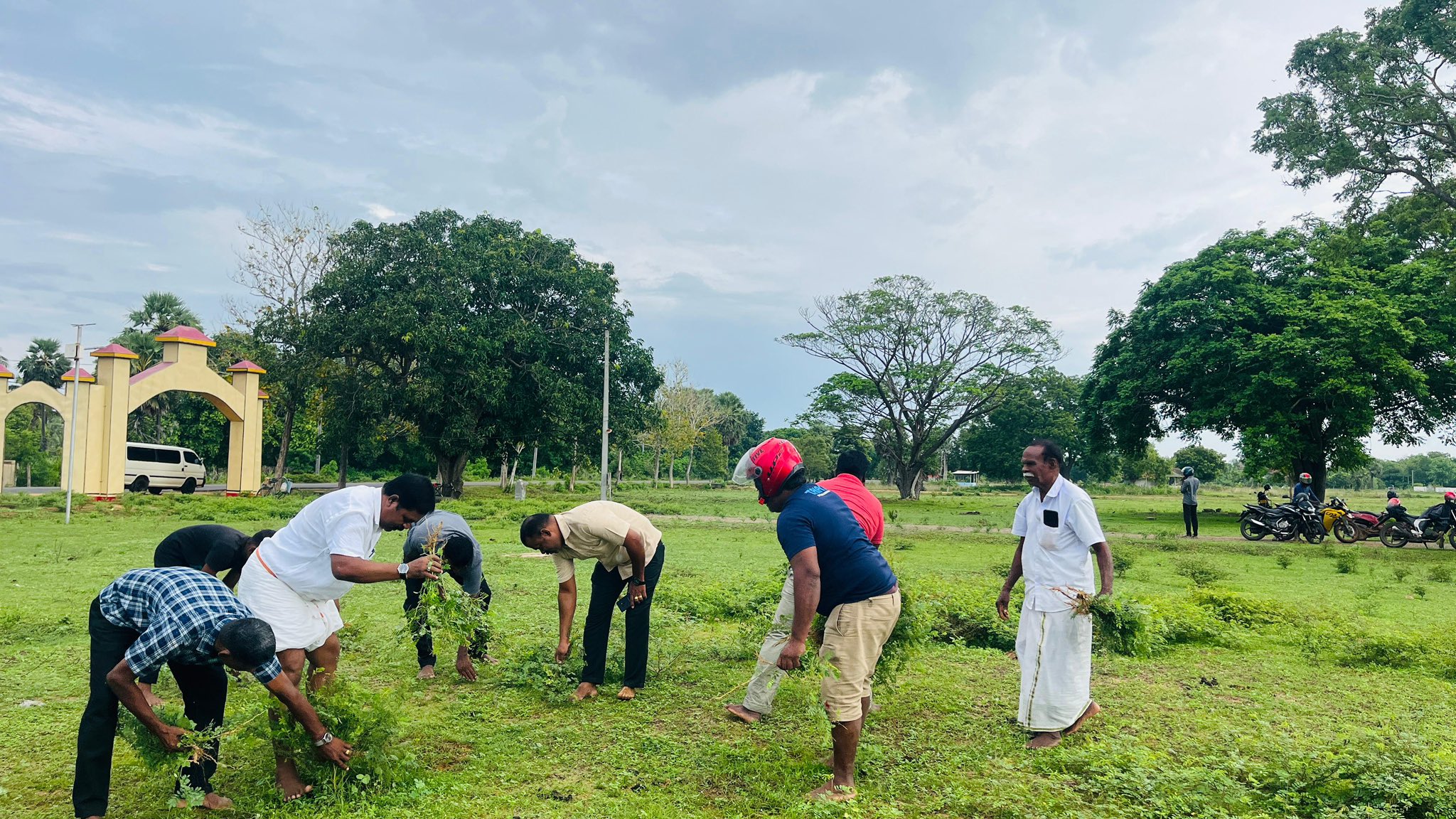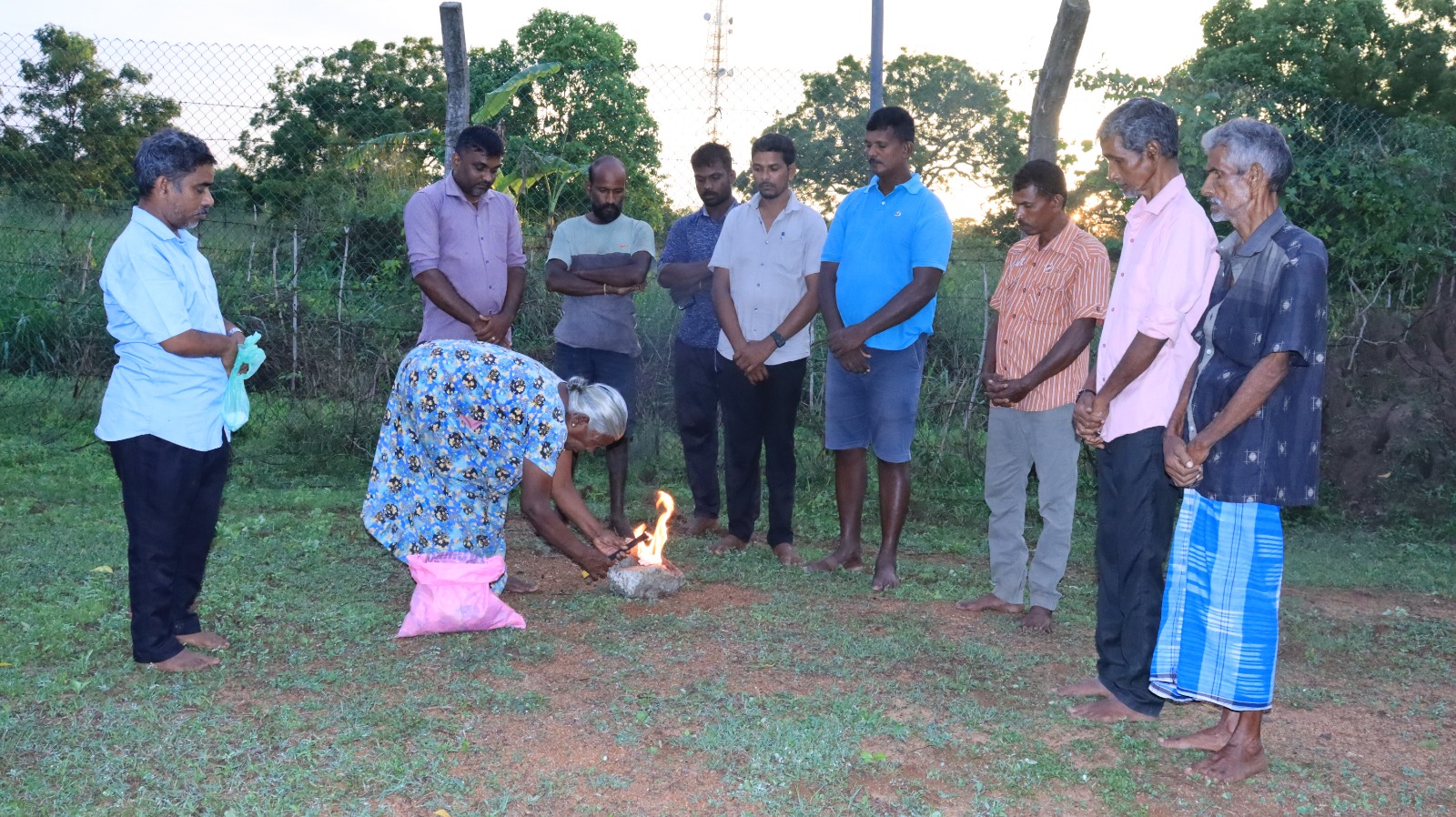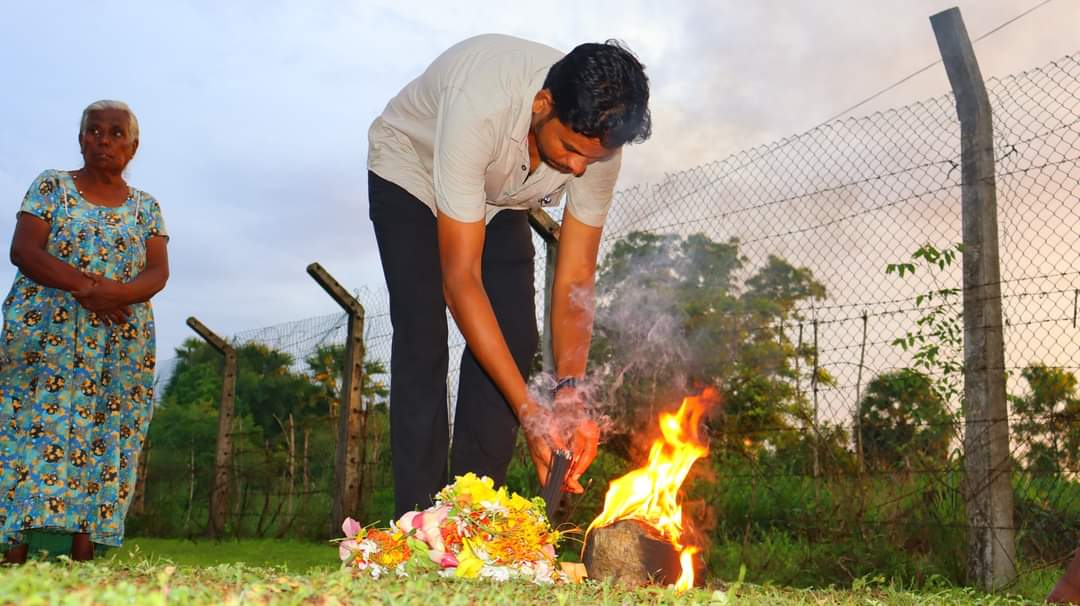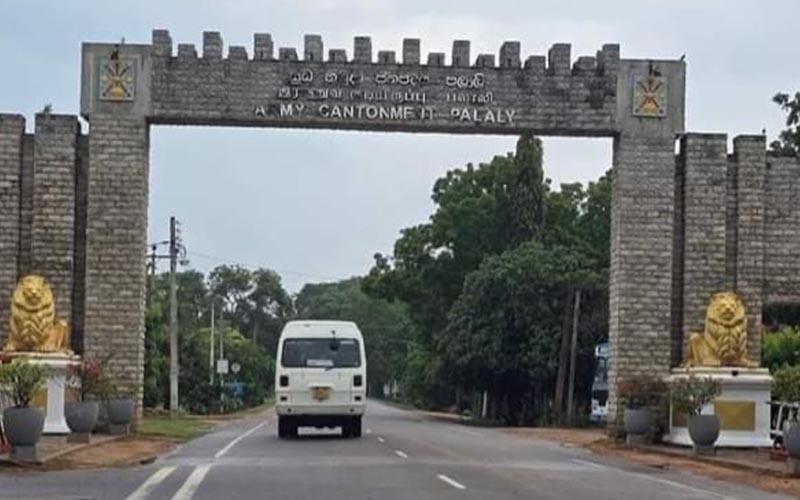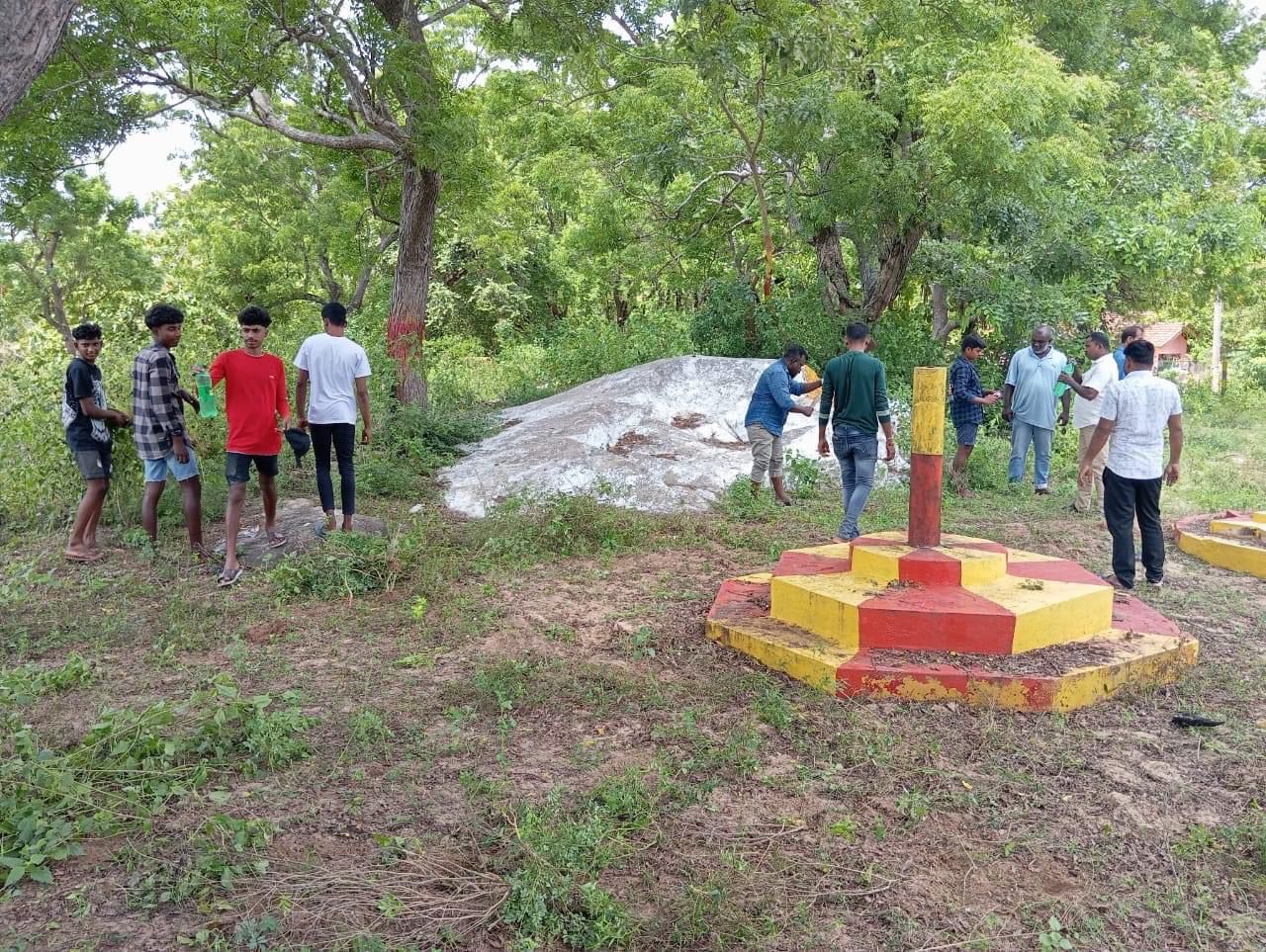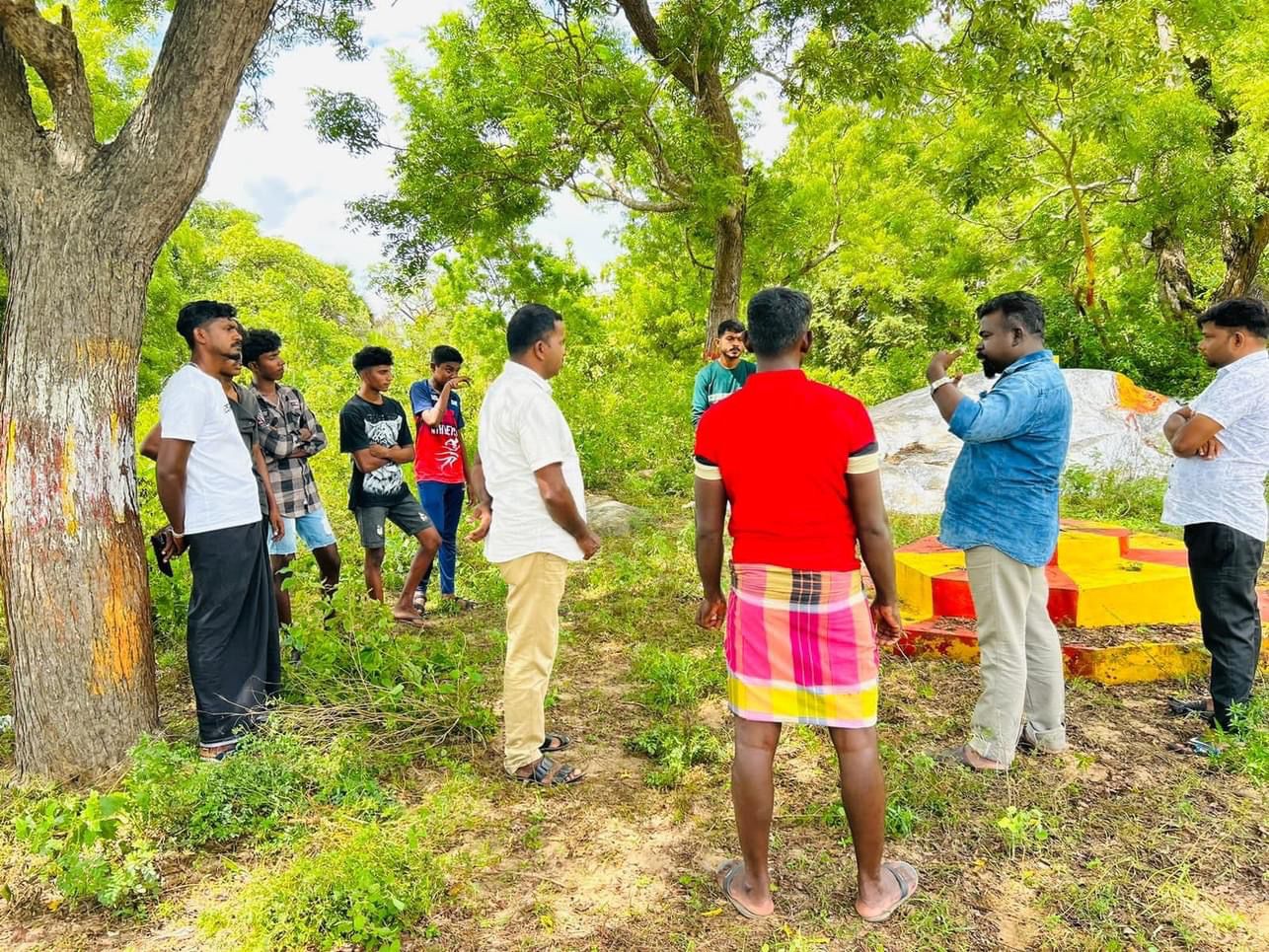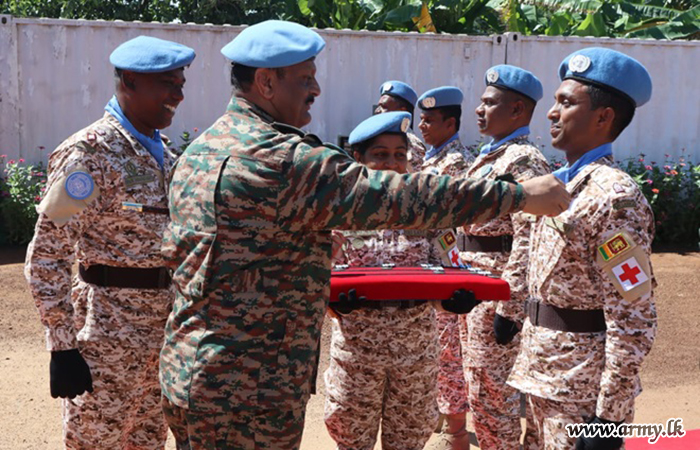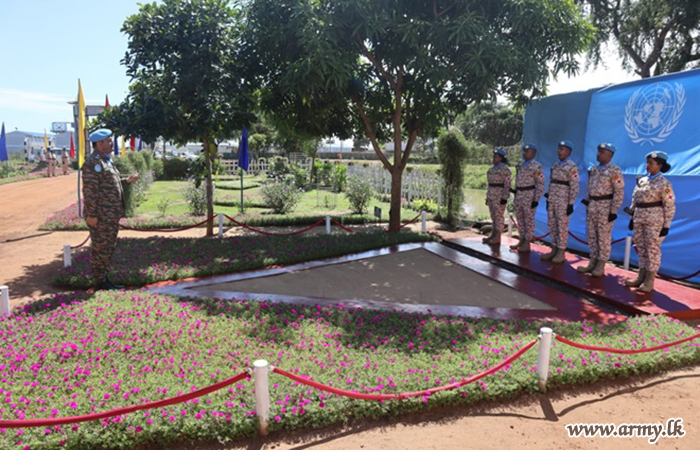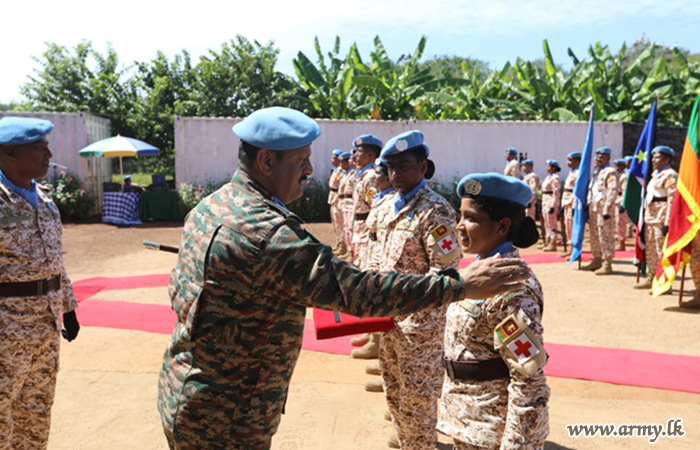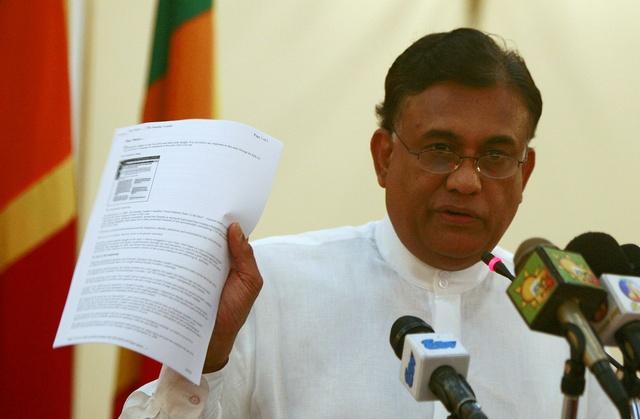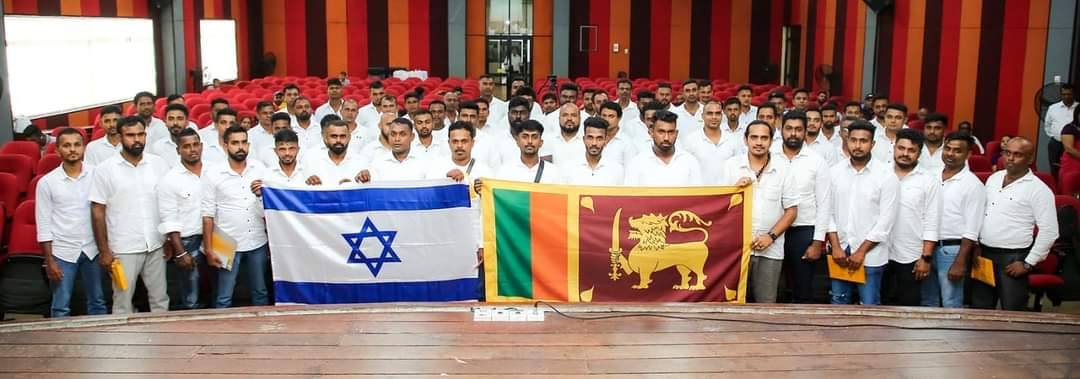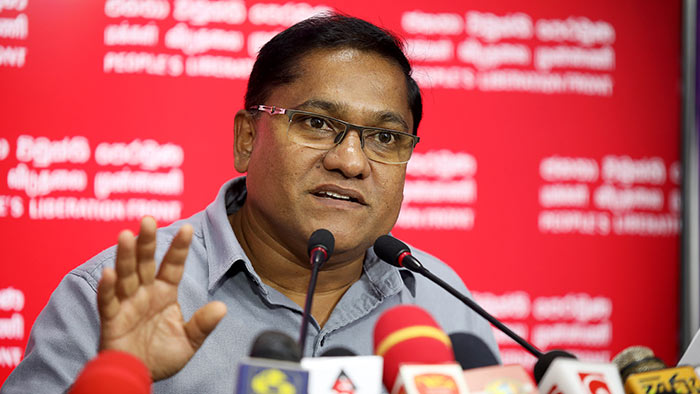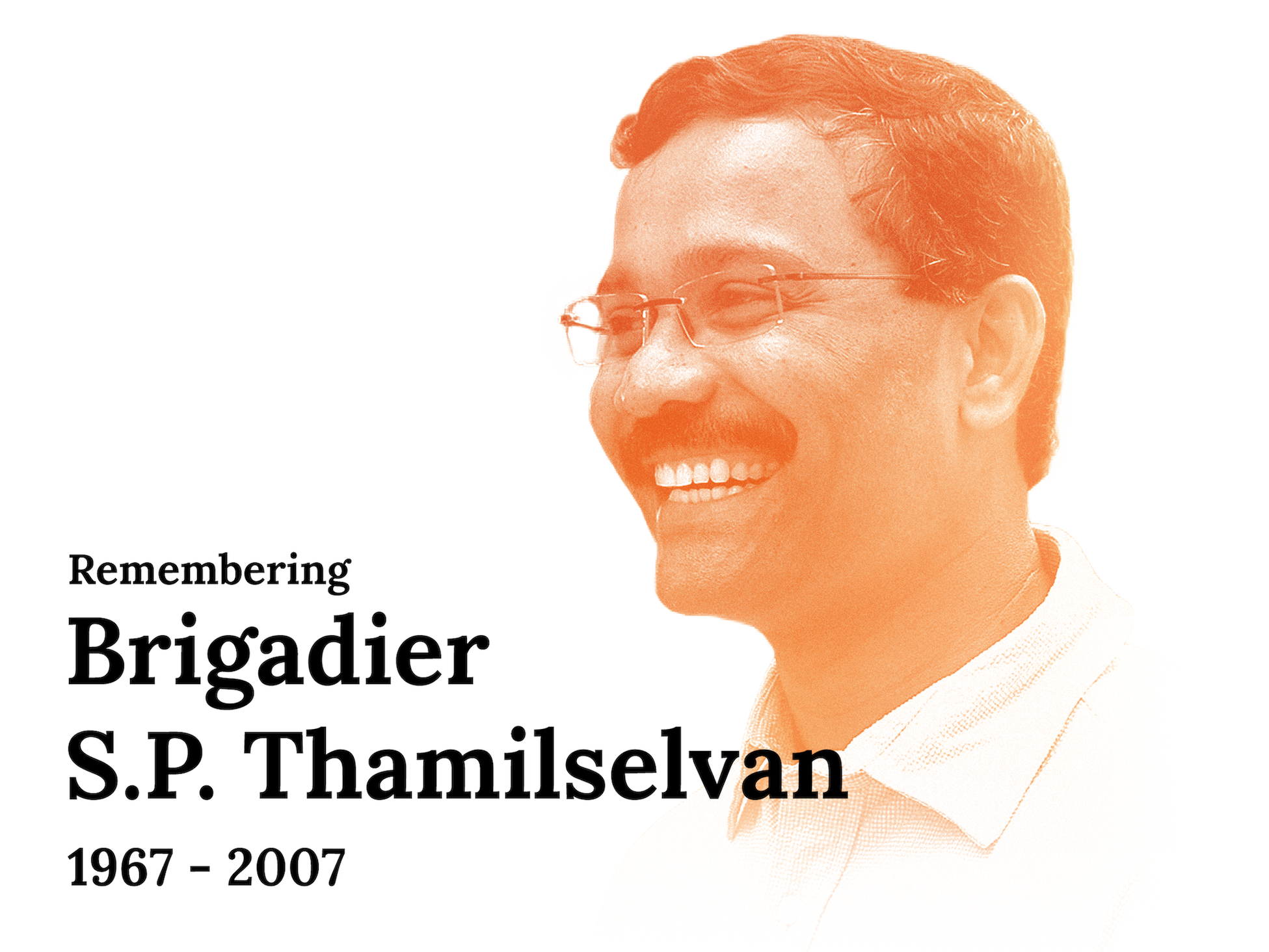
Photograph: @TamilNarratives
Today marks 17 years since S. P. Thamilselvan, the head of the political wing of the Liberation Tigers of Tamil Eelam (LTTE), was assassinated by the Sri Lankan air force (SLAF).
On November 2, 2007 Sri Lankan air force jets carried out a strike on a residence of members of the LTTE's political division. Five other LTTE officials - Lt. Col. Anpumani (Alex), Major Mikuthan, Major Nethaaji, Lt. Aadchiveal and Lt. Maavaikkumaran - were killed alongside Brigadier Thamilselvan, in the attack.
The assassination came as the Sri Lankan government ramped up its military offensive in the Tamil homeland. Brigadier Thamilselvan was a member of the LTTE negotiating team that took part in peace talks with the Sri Lankan government in 2002 and 2003, becoming the Chief Negotiator after the death of Anton Balasingham.
The Office of the High Commissioner for Human Rights' (OHCHR) report into Sri Lanka's atrocities (OISL) noted that Sri Lanka's military killed the LTTE's political head before it officially withdrew from the Cease Fire Agreement (CFA) in 2008. It noted that the attack was preceded by a military budget that "had reportedly risen by 40 percent and the Army had tripled in size from 100,000 to 300,000, with almost an additional 5,000 troops recruited per month between 2005 and 2008".

Tamil mourning
The death of Brigadier Thamilselvan was mourned by the Tamil nation across the globe.
Some 25,000 people attended his funeral in Kilinochchi, with several LTTE commanders, officials, religious leaders and Tamil National Alliance parliamentarians taking part in the funeral procession. The Sri Lankan government blocked Thamilchelvan's mother and siblings, who lived abroad, from attending the funeral.


He was laid to rest at Kanagapuram Heroes Cemetery in Kilinochchi, which has since been bulldozed by the Sri Lankan state.
LTTE leader Velupillai Prabhakaran said the killing was an “unparalleled loss”, in a statement days after his death.
“Despite the repeated and continuous calls from the international community to find a peaceful resolution to Tamil national question, we have not seen any goodwill from the Sinhala nation,” he continued. “We do not see the Buddhist universal love. Sinhala nation did not open its heart and send a peace message. On the contrary, it is sending war-vultures that are dropping giant bombs. It has cruelly killed our peace dove.”

Poddu Ammaan, the intelligence wing chief of the LTTE, said “the International Community in an uneven judgement in applying its norms, scaled us with Sri Lankan government abounding with military and economic resources. The scale was not fair. The price we paid for the International Injustice is the life of Thamilchelvan,"

The Tamil National Alliance released a statement, saluting his "services to the Tamil people and selfless sacrifice for the Tamil Eelam struggle”.
"Although his death is destined to create thousands of new Tamilselvans who will doubtless serve our freedom struggle with dedication, we shudder at the repercussions for peace of this act by the Sri Lanka government," the TNA said.
"To deliberately target a peace negotiator sends a clear message that the Sri Lankan government is not even interested in talking about neither in peace nor in negotiations," said David Poopalapillai spokesperson for Canadian Tamil Congress.
A coalition of twelve American Tamil organisations said the killing was “an irreparable loss to both the Tamil nation and the peace process”.
Tributes to Brigadier Thamilselvan also poured in from Tamil Nadu, with the then Tamil Nadu Chief Minister penning a poem in his memory.

Dr Ramadoss, leader of Paattali Makkal Katchi (PMK) said “through the heinous assassination of Tamilselvan, the Sri Lankan government has clearly demonstrated its non-commitment to peace and its intention of wiping out the Tamil race from the island”.
K. Veeramani, the leader of Dravidar Kazhagam, D. Pandian, the Tamil Nadu State secretary of the Communist Party of India, the Periyar Dravida Kazhagam, V. Gopalsamy (Vaiko), the general secretary of Marumalarchi Dravida Munnetra Kazhagam and Desiya Murpokku Dravida Kazhagam president Vijayakanth were also amongst the others to express their condolences and solidarity.
Thousands attended commemoration events in London, Switzerland, Denmark, France, Italy, Norway, Netherlands, Germany, Finland, Canada, Australia, New Zealand, South Africa and Malaysia.
International condolences
Jon Hanssen Bauer, the Norwegian special envoy for the peace process in Sri Lanka, said Thamilselvan had “impressed me as a person who was hopeful and was willing to find ways ahead, even in such situations in which things seemed impossible to others”. “Tamilselvan's demise is a big loss for all of us,” he added.
In Canada, several parliamentarians attended a memorial event held in Brigadier Thamilselvan’s memory, alongside thousands of Tamil Canadians. Liberal MP Jim Karygiannis was on stage at the event alongside fellow Liberal MPs Derek Lee (Scarborough Rouge River), Maria Minna (East York Beaches), Yasmin Ratansi (Don Valley East), John Mckay (Scarborough Guildwood), John Cannis (Scarborough Centre), Mark Holland (Ajax-Pickering), and Lui Temelkovski (Oakridge Markham).

Also see below for coverage and obituaries from Reuters, The Guardian and The Independent.
Slain Tiger was public face of LTTE – Reuters
S. P. ThamilselvanTamil Tigers political leader - Independent
SP Thamilselvan: Chief negotiator and international face of the Liberation Tigers of Tamil Eelam - The Guardian
Sinhala jubilation
Whilst the Tamil nation was in a state of mourning, in Sri Lanka the Sinhalese were jubilant, celebrating the assassination.
Firecrackers were lit and traditional drums were played in the street. Parties were organised at home. Some Buddhist temples held all night celebrations. Meanwhile, the Colombo stock market soared on news of the killing.
Then Defence Secretary Gotabhaya Rajapaksa warned that the assassination was just the beginning.
“This is just a message, that we know where their leaders are. I know the locations of all the leaders, that if we want we can take them one by one, so they must change their hideouts,” he told Reuters. “When the time comes only, we take them one by one.”
“He is a terrorist and no question of it, the government justifies the action that was taken by the air force,” said Defence Ministry spokesman Keheliya Rambukwella.
The then main opposition United National Party (UNP) also reveled in the news of Thamilselvan’s killing. UNP spokesman Lakshman Kireiella praised the Sri Lankan Air Force and hailed the assassination as “a victorious moment”. UNP stalwart S.B. Dissanayake also praised the killing as a “morale boosting victory” for the Air Force.
“There should not be any regret about his death,” he added.

Our editorial at the time reflected on how the assassination” is a quintessential reflection of the Sinhala mindset”.
President Mahinda Rakapakse, along with the vast majority of Sinhalese, see the island's ethnic problem purely as a Tamil terrorist challenge. For all the lip-service (and there's not much of that about now) about power sharing, the south is single-mindedly focused on a military victory. The abandon with which the military has for two years blasted Tamil villages, driven hundreds of thousands of Tamils from their homes and continues to abduct, torture and murder Tamils is underwritten by the confidence the international community, despite its distaste, is nonetheless solidly behind Colombo’s war.
Both the Sinhalese and the international community have their legitimating theories. For the Sinhalese, once the LTTE is destroyed, the Tamils will docilely accept whatever limited (and decidedly undeserved) powers they are given. The leading members of the international community in Sri Lanka agree. But they also believe that once the LTTE is destroyed, the island can be 'developed' whereupon Sinhalese, Tamils and, for that matter, the Muslims, will come to see each other as fellow Sri Lankans and live happily ever after. Despite the decades of Sinhala oppression the Tamils have faced by successive governments since independence (i.e. three decades before Tamil militancy was triggered), the international community bases its strategy today off a utopian vision of an ethnic harmony to come. It is not that such a vision is impossible that is staggering but, rather, the belief it can be realized by enabling a violent Sinhala conquest of the Tamils followed by economic development.
The various reactions to the Sri Lankan military's assassination of Mr. Tamilselvan should serve as food for thought for anyone out there who still believes either that peace talks might end the bloodshed or, even more naively, that the international community will act to protect the Tamils against the rampages of the state.
Last week Sinhalese reveled in Mr. Tamilselvan's assassination. Traditional drums were played in the street. Parties were organized at home. Some Buddhist temples held all night celebrations. For any Sinhalese who genuinely desires a negotiated solution, the killing of the other side's top diplomat should have been deeply worrying and regrettable. But very few in the south feel this way, something the Tamils need to bear in mind as they make their way in the time to come. For decades, when faced with violence and brutality by a Colombo government, many Tamils have rushed to the feet of the Sinhala opposition, voting it into power in a laughably futile effort to end their suffering, if only for a while. They have chased after the SLFP and UNP in turn, insisting, despite the evidence of their past suffering, that this time round it would be different.
In reality, for the Tamils, there is nothing to choose between the main Sinhala parties.
Both Mr. Tamilselvan and Lt. Colonel Anpumani (Alex), who was also killed in Friday's airstrike, were friends of this newspaper. From the outset of the Norwegian peace process, concerned that the Tamil people be kept informed of developments, they, along with the LTTE's then Chief Negotiator, Mr. Anton Balasingham, went out of their way to ensure we were briefed on the peace process. We will miss them.
Read more in our editorial:
No choice - 06 Nov 2007

Months before he was killed Brigadier Thamilselvan spoke to The Guardian.
"It was never the intention of the Tamil people even in the early 1950s even to ask for federalism. They only asked that we be allowed to co-exist but don't treat us as second-class citizens," he said. "No government in Colombo has the political will or courage to educate their constituents about providing a solution to the Tamil political crisis. We have to get our own independence."
"Let the Tamil people live in their traditional homeland," he said in another interview in Kilinochchi.
"Leave the Tamil people without any military occupation or persecution. That will be the day there is no war."




